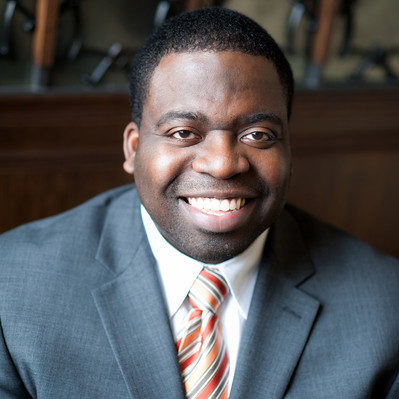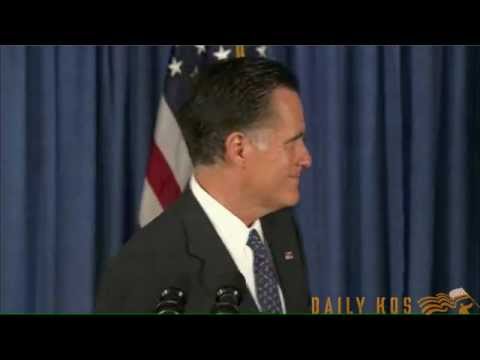PHOTO: Mitt Romney leaves podium after speaking about U.S. consulate killings in Benghazi, Libya via @AP pic.twitter.com/4mx1PCfG
— Charles Dharapak (@Dharapak) September 12, 2012
Romney will make them an enemy either way.
The Russian leader said Romney’s comments strengthened his resolve to oppose NATO’s plan for a missile defense shield in Eastern Europe, a system Russia believes will degrade its nuclear deterrent. The U.S. insists the system is aimed at Iran, not Russia.
“I’m grateful to him (Romney) for formulating his stance so clearly because he has once again proven the correctness of our approach to missile defense problems,” Putin told reporters, according to the Russian news agency RIA Novosti.
“The most important thing for us is that even if he doesn’t win now, he or a person with similar views may come to power in four years. We must take that into consideration while dealing with security issues for a long perspective,” he said, speaking after a meeting with Serbian President Tomislav Nikolic, according to Interfax news agency.
source: Putin Thanks Romney for Calling Russia No. 1 Foe – ABC News.
From Neo-Con Romney foreign policy advisor John Bolton’s brain through Romney’s mouth:
First and foremost, we should cut Syria off from its major supporters. The television images from Syria will not change permanently until the underlying strategic terrain changes permanently. Russia should be told in no uncertain terms that it can forget about sustained good relations with the United States as long as it continues to back Assad. We should resume full-scale, indeed accelerated, efforts to construct the limited missile-defense system designed by George W. Bush to protect American territory not against Russia but against rogue states such as Iran and North Korea. But we should immediately make it clear to Moscow that we will begin to consider broadening our missile-defense program to deal with Russian and Chinese ballistic-missile capabilities. We should also announce our withdrawal from the New START arms-control treaty, and our utter disinterest in negotiations to prevent an “arms race” in space. Let Moscow and Beijing think about all that for a while.
source: What to Do about Syria? – John R. Bolton – National Review Online.
Bolton wanted to go back to the arms race!
Here is John Bolton on the Russia/Georgia conflict before the 2008 election:
Saying this may cause angst in Europe’s capitals, but now is the time to find out if Nato can withstand a potential renewed confrontation with Moscow, or whether Europe will cause Nato to wilt. Far better to discover this sooner rather than later, when the stakes may be considerably higher. If there were ever a moment since the fall of the Berlin Wall when Europe should be worried, this is it. If Europeans are not willing to engage through Nato, that tells us everything we need to know about the true state of health of what is, after all, supposedly a “North Atlantic” alliance.
source: John Bolton: After Russia’s invasion of Georgia, what now for the West? – Telegraph.
In August, 2008, on the brink of an international depression, while we were engaged in the two longest wars in our history, Bolton said that it was the best time to escalate tensions with Russia. Remember, Bolton was the US Representative to the UN who was a recess appointment by George W Bush who famously didn’t believe the UN should really exist. He’s a warmonger, and he’s Romney’s foreign policy brains.
Romney outlined his Foreign Policy intentions yesterday during his unneeded press conference after his statement on the Libyan conflict:
ROMNEY: First, confidence in our cause, a recognition that the principles America was based upon are something we shrink from or apologize for; that we stand for that principles.
The second is clarity in our purpose, which is that when we have a foreign policy objective, we describe it honestly and clearly to the American people, to Congress and to the people of the world.
And number three, is resolve in our might: that in those rare circumstances — those rare circumstances where we decide it’s essential for us to apply military might, that we do so with overwhelming force, that we do so in the clarity of a mission, understanding the nature of the U.S. interest involved, understanding when the mission will be complete, what will be left when it is — what will be left behind us when that mission has — has been — has been terminated.
source: Mitt Romney’s statement on the Libya ambassador attack – The Washington Post.
Mind you this tough talk is key to Romney’s foreign policy. Might makes right is what’s key there. Confidence in our cause (sure that we are right), clarity in our purpose (a posture of demanding concessions just because) and our force used overwhelmingly as a solution to problems.
When Romney’s false and craven statement is released as embargoed, when Clint Eastwood is talking to imaginary presidents in chairs at your convention, when the current administration’s State Department was already working to secure the safety of a Chinese dissident and Romney decides to interject incendiary statements that escalated tensions, half informed fear mongering, basically has shown an inability to understand the personal fortitude and patience to serve as Head of State.
This is Romney’s methodology of foreign policy posture: better early and adversarial posturing than patient and informed action.
From WaPo’s Glen Kessler, here’s how President Jimmy Carter’s opponents treated the hostage crisis during the 1980 campaign:
In April 1980, Reagan was still battling George H.W. Bush for the GOP nomination, while Sen. Edward M. Kennedy was challenging Carter for the Democratic nomination. This is excerpted from The Washington Post reporting on the political fallout:
Carter’s presidential rivals were charitable. Republican George Bush supported the president’s actions without reservation. Ronald Reagan and Edward Kennedy offered sympathy to the families of the dead troopers and called for national “unity.”
Bush was most outspoken, saying, “I unequivocally support the president — no ifs, ands or buts. . . . He made a difficult, courageous decision.”
In strikingly similar formal statements, which they declined to amplify, Reagan and Kennedy expressed sympathy for the family of the eight men killed in the rescue effort, and pledged to preserve “national unity” in the cause of the hostages’ release.
Before breaking off his Michigan campaigning to return to Washington, Kennedy said, “I share the feeling of all Americans at this sad moment for our country. . . . Whatever our other differences, we are one nation in our commitment to the hostages, our concern for their families, and our sorrow for the brave men who gave their lives trying to rescue their fellow citizens.”
A few hours later, Reagan told a Los Angeles press conference, “This is a difficult day for all of us Americans. . . . It is time for us . . . to stand united. It is a day for quiet reflection . . . when words should be few and confined essentially to our prayers.”source: History lesson: What Ronald Reagan said – The Washington Post.
Ronald Reagan, George HW Bush and Ted Kennedy. Supporting the president in diplomatic matters of state wasn’t a partisan thing.

